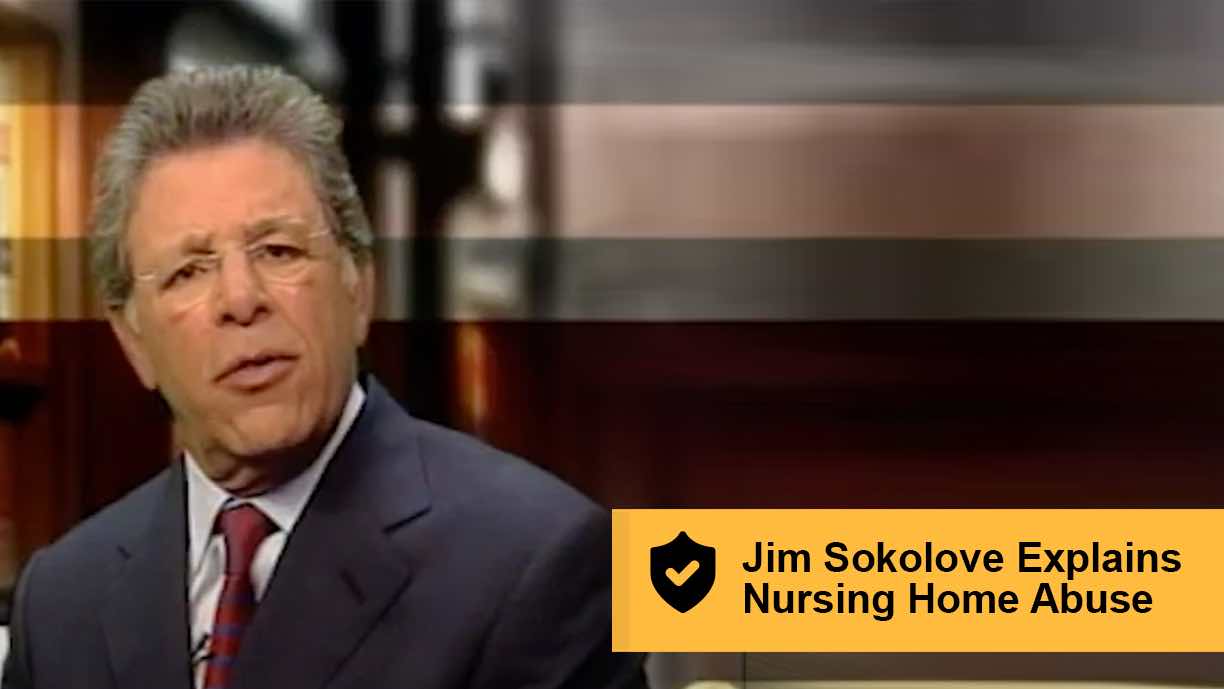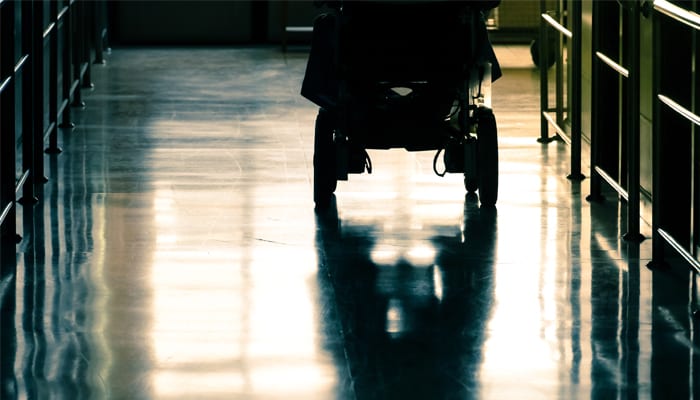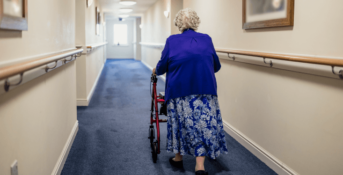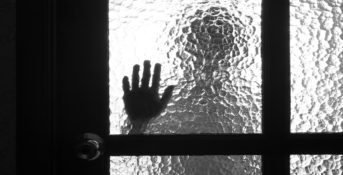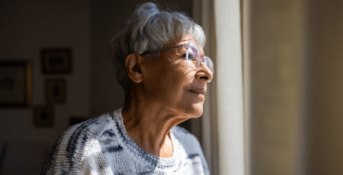Nursing homes are designed to provide high-quality care to residents whose families cannot care for their elderly or disabled loved ones on their own. However, residents at nursing homes and assisted living facilities may be at risk of abuse and neglect.
Sokolove Law has recovered hundreds of millions of dollars for families affected by unacceptable nursing home abuse cases. Find out your legal options now by calling (800) 995-1212 for a free case review.
What Is Nursing Home Abuse?
Nursing home abuse and neglect has been a nationally recognized problem since the 1970s, according to the U.S. National Research Council.
It occurs when elderly residents suffer serious injuries or neglect while living in a nursing home. The abuse or mistreatment of elders can lead to mental problems, serious illnesses, and even death.
According to the U.S. Department of Justice (DOJ), 1 in 10 adults at least 60 years old or older will experience elder abuse in any given year.
Families often have no other choice but to place an elderly loved one in a nursing home or long-term care facility. This is often the case for seniors who suffer from physical or mental conditions that need round-the-clock care.
Most families trust that their elderly loved one will be well taken care of in a nursing home or skilled nursing facility — as these facilities are designed to keep seniors safe and healthy.
Unfortunately, there are reports of older adult residents being seriously injured or dying in nursing homes throughout the United States.
Nursing home residents can suffer the following types of abuse:
- Emotional abuse
- Verbal abuse
- Physical abuse
- Psychological abuse
- Financial abuse or financial exploitation
- Serious neglect (like bedsores) and malnutrition
- Social isolation
- Sexual abuse or sexual assault
No matter what form it takes, abuse brings serious harm and is unacceptable.
Speaker 1 (00:01):
Access to Justice, powered by Sokolove Law.
Jim Sokolove (00:05):
The circumstance surrounding placing a loved one in a nursing home are sudden and often very emotional for families. As a result, little advanced planning is done to prepare for this decision, leaving families scrambling for options. Congressional reports revealed that over 30% of the 17,000 nursing homes nationwide were cited for abuse violations over just one, two year period. The abuse may include neglect of basic needs, untreated malnutrition or dehydration. Other signs include unexplained bruises, bedsores, cuts and broken bones. An experienced nursing home abuse attorney may be able to assist you in determining whether or not your loved one is suffering nursing home abuse. He may be able to help you seek the financial compensation you and your family needs and deserve.
Nursing Home Abuse Statistics
- By 2030, there will be a 50% increase in the number of older adults over the age of 65 who require nursing home care, according to the National Center on Elder Abuse (NCEA).
- 44% of senior citizens in long-term care settings suffer abuse in some way, but only an estimated 7% of the cases are reported, according to the National Institutes of Health (NIH).
- 2 in 3 staff members admitted to committing abuse in the last year, according to the World Health Organization.
- Around 95% of nursing home residents have suffered neglect or witnessed it, according to the NCEA.
- Abused seniors have a 300% higher risk of death compared to those who were not mistreated, according to the National Council on Aging (NCOA).
Nursing Home Abuse Legal Help
Nursing home abuse causes suffering — both to residents and their families. The victim may have suffered injuries that require medical attention. Those who trusted a nursing home to care for their loved one may be emotionally distraught.
No matter your financial circumstances, you have access to justice — through a nursing home abuse lawsuit.
Our experienced team can help you:
- Collect documents, statements, and medical records to strengthen your case
- Receive financial compensation through a legal claim
- Hold the nursing home care abusers accountable
General lawyers may not have the resources or experience to properly handle your case, so families are encouraged to work with a nursing home abuse lawyer like those at Sokolove Law.
Learn More About Your Options
Our experienced nursing home lawyers can help you understand your legal options during a free case review. Let us try to find out what happened — and work to get you answers.
Our Past Results for Nursing Home Abuse Victims
As of December 2024, our nursing home abuse and neglect attorneys have secured more than $280 Million for victims and their families nationwide.
A few of our many past nursing home settlements include:
- $2.2 Million for an elderly woman in Rhode Island who suffered a heart attack
- $2 Million for a Massachusetts woman who passed away after her catheter became infected from not being changed
- $2 Million for a California woman with dementia who passed away after being denied care
- $1.75 Million for an elderly man in Massachusetts who passed away in a fire caused by neglect
- $1.5 Million for a Minnesota woman with stage 4 bedsores
- $1.18 Million for an Indiana nursing home patient
- $1.11 Million for a Florida woman who suffered a heart attack in care
Let us get you the money you deserve. Get a free legal case review now or call our team 24/7 at (800) 995-1212.
Causes of Nursing Home Abuse
Not all nursing homes are able to provide the same standard of care. Some facilities lack the resources (like staffing) and oversight needed to ensure all residents receive quality care. Some nursing homes are chronically understaffed and may be unable to take care of their many residents.
We understand that many nursing home staff members work long, hard hours. Many of these caregivers are a blessing to families who cannot care for an elderly person on their own.
Unfortunately, nursing home staff are not immune to the challenges that arise from understaffing and poor management, and sometimes intentional abuse occurs.
Nursing home staff members may experience:
- Burnout and overwork
- Improper training
- Lack of management or supervision
- Shortages and understaffing
Any of these external factors may contribute to abuse or neglect.
Warning Signs of Nursing Home Abuse
It cannot be overstated: If you know the signs of nursing home abuse, you can be the one to end it.
Elderly citizens may be at higher risk of abuse if they have mental or physical health problems that make it harder for them to speak up. For example, a resident with Alzheimer’s disease or dementia may not be able to tell you if another resident or nursing home employee has hurt them.
Despite this higher risk, there are steps you can take to help keep your loved one safe. Find out more about the list of common signs below.
Physical Injuries
- Broken bones
- Bedsores
- Head injuries
- Unexplained bruising
Signs of Neglect
- Dehydration or malnourishment
- Medication errors
- Poor hygiene
- Soiled bedding
Emotional Changes
- Sudden personality changes
- Agitation, withdrawal, or fear
- Frequent crying
- Complaints of poor treatment
If you notice that your loved one exhibits any of these signs of nursing home abuse, do not wait — take immediate action.
“Soft signs of abuse are any time you see the resident changing from how they were behaving before. Pay attention to why they are doing it that way. We do this with our pets, we do this with our children. They maybe can’t put words to it. We know something is wrong.”
– Dr. John Brose, Associated Clinic of Psychology
Get the Help Your Family Deserves
We are compassionate with those who turn to us — and relentless with those who’ve done them wrong. Let us fight for your family.
How to Report Nursing Home Abuse
Many incidents of nursing home neglect or abuse go unreported — as many as 24% of incidents are not reported, according to the DOJ.
If you suspect that someone you love has been abused, there are options available. If needed, you can remove your family member from the nursing home.
Always call 911 if someone’s life is in immediate danger. In all abuse cases, the health of the victim should be the biggest priority.
If you suspect abuse, you can also file a report with local, state, and national authorities. Keep in mind, some reporting procedures vary by state.
Each state has Adult Protective Services (APS) agencies. APS operates with state governments to keep elders safe. Every state also has a long-term care ombudsman program. Ombudsmen are volunteers who listen to the concerns of nursing home residents and work toward solutions.
Reporting nursing home abuse is a crucial step. By bringing to light the abuse, you hold the nursing home and the abusers accountable. This can bring about positive change and protect other families from suffering.
Once the abuse is reported, you may also wish to seek justice and compensation through a nursing home abuse lawsuit.
To get the process started, contact Sokolove Law, a trusted nursing home abuse law firm.
Sokolove Law Is a Trusted Nursing Home Abuse Law Firm
Sokolove Law has been fighting for victims of nursing home abuse and elder neglect for more than 40 years. During that time, we have recovered over $280 Million for victims and their families nationwide.
Our experienced lawyers can help you recognize the warning signs of abuse. They can also help you get the justice and compensation to which you may be entitled.
Sokolove Law is a national nursing home abuse law firm with a licensed attorney in nearly every state. This allows us to file a legal claim on your behalf no matter where you live. Our team will work tirelessly on your behalf while you focus on healing.
Get a free legal case review now or call (800) 995-1212 to speak with a member of our team. We're standing by to answer your questions and help determine if you have a case.
Nursing Home Abuse & Neglect FAQs
What is considered abuse in a nursing home?
Generally speaking, nursing home abuse refers to any form of injury or harm that a senior citizen in a nursing home or long-term care facility experiences.
A number of different situations may be considered nursing home abuse, including:
- Emotional or psychological abuse
- Financial exploitation
- Neglect
- Physical abuse
- Sexual assault
If you believe you or a loved one are suffering abuse in a nursing home, contact Sokolove Law today. We may be able to help you hold the abusers accountable.
What is nursing home negligence or neglect?
Nursing home neglect or negligence refers to when a resident in a long-term care or assisted-living facility does not receive adequate care from staff members.
Neglect in nursing homes can include not:
- Administering the correct medications
- Attending to a resident’s personal hygiene needs
- Moving immobile patients, causing them to develop bedsores
- Properly supervising residents, leading to falls or other incidents
- Providing food and water, resulting in malnutrition or dehydration
Inaction by staff members can result in a resident’s physical and emotional decline, and, in severe cases, may also lead to wrongful death.
For instance, poor hygiene or wound care can quickly turn a common infection into deadly sepsis for a senior citizen.
How common is nursing home abuse?
Unfortunately, nursing home abuse is all too common. Approximately 1 in 6 residents over the age of 60 have experienced abuse in the past year, according to the World Health Organization.
By filing a lawsuit against abusers and the facilities that enable them, we may be able to reduce the rate of abuse occurring in nursing homes nationwide.
What are the types of nursing home abuse?
Abuse in nursing homes can present itself in many ways, like acts of physical violence or a failure to meet a resident’s basic needs.
The types of nursing home abuse include:
- Emotional or psychological abuse
- Financial exploitation
- Neglect
- Physical abuse
- Sexual assault
Contact Sokolove Law now if you believe your loved one was abused in a nursing home. We may be able to help you hold the abusers accountable and prevent them from hurting others.
What is the most common type of nursing home abuse?
Emotional abuse is the most common type of abuse in nursing homes. In some cases, emotional abuse can eventually lead to more severe forms of abuse, including physical violence.
Pay close attention to verbal threats, derogatory remarks, or attempts to humiliate and ridicule a resident. These may be warning signs that the abuse could soon escalate.
Why do abuse and neglect occur in nursing homes?
A lack of resources and professional supervision can contribute to the climbing rates of abuse and neglect in nursing homes.
Staff members may be more likely to abuse or neglect residents if they:
- Are overworked or burned out
- Do not receive the proper training
- Lack supervision or management
- Work in an understaffed facility
Regardless of why it happens, nobody deserves to be abused in a nursing home.
Call (800) 995-1212 now to see if you may be able to take legal action over the harm your loved one experienced.
Who are the abusers in nursing homes?
Nursing home abusers are usually paid professionals or staff members who have a legal or contractual obligation to provide elder residents with care and protection.
Abusers can be medical professionals, nurse aides, physical therapists, and other support staff at the care facility.
How do you prove abuse or neglect happened?
You may be able to work with an experienced nursing home attorney who can investigate and collect evidence to prove abuse or neglect happened.
This evidence may include:
- Medical records
- Photos and videos
- Staff logs
- Witness testimony
A nursing home may try to cover up any instances of abuse that took place, so it’s important to document anything related to your loved one’s injury and seek legal help as soon as possible.
What are nursing home abuse injuries to look out for?
Nursing home abuse injuries to look out for include:
- Bedsores
- Broken bones, fractures, or sprains
- Bruises or cuts
- Head injuries
If the cause of your loved one’s injury is unclear, it may be a sign of nursing home abuse. It’s important to thoroughly investigate the cause of all injuries to determine if abuse may have occurred.
What is your responsibility following suspected abuse in a nursing home?
If you suspect abuse is occurring in a nursing home, it’s your responsibility to report it immediately in order to ensure the safety and well-being of the residents.
Many nursing home residents are unable to properly advocate for themselves. By speaking up, you can be their voice and help them get the care they deserve.
How can I get help for my family member or loved one?
To help a family member or loved one, you can report the abuse to the authorities and move them to a safer facility.
You may also want to contact a nursing home abuse attorney who can fight for compensation on their behalf, which can be used to help pay for medical bills and other expenses.
Lawsuits for nursing home abuse do more than punish the person at fault — they can prevent the abuser from ever harming another victim.

